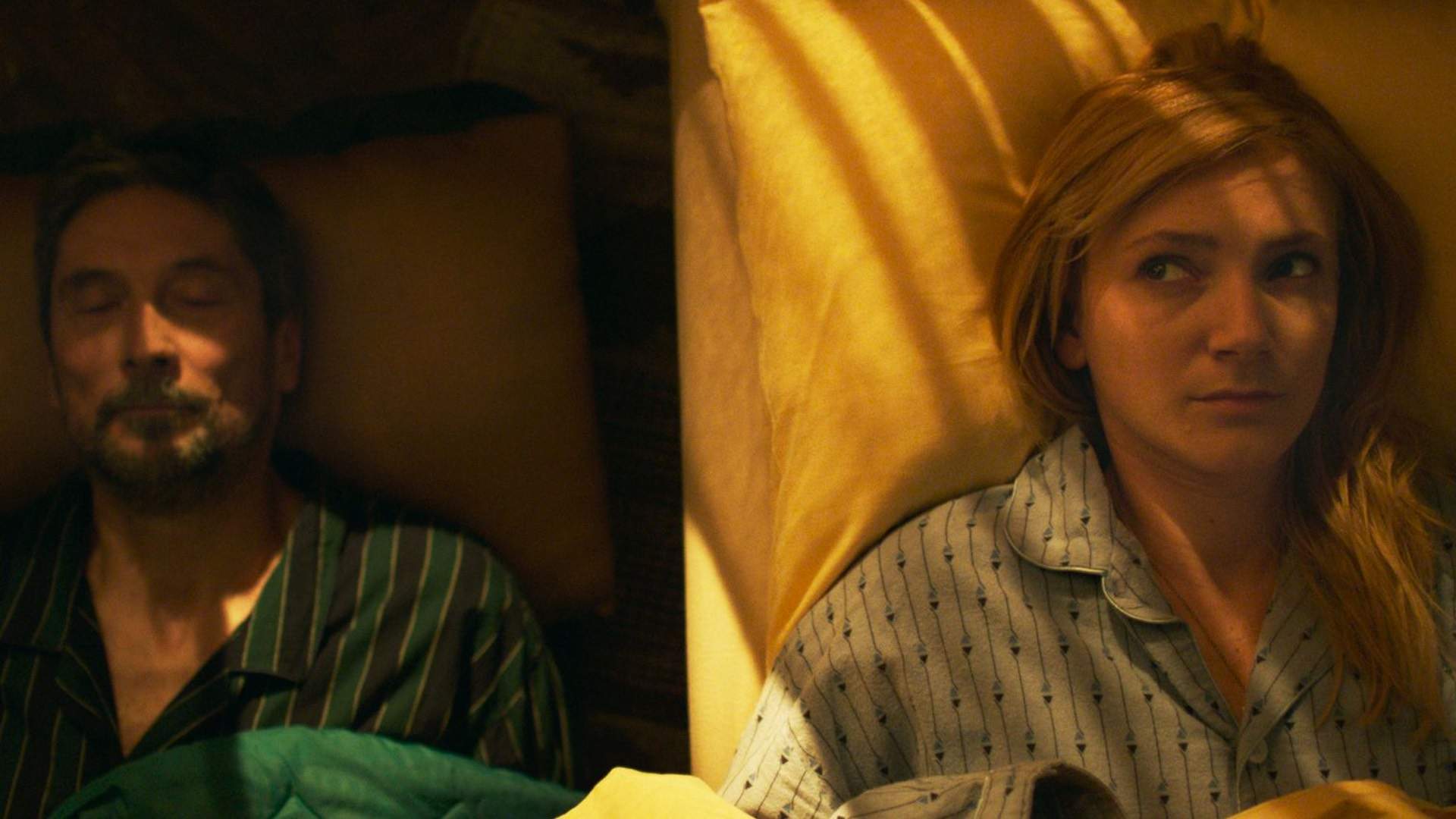On Body and Soul
A surreal romance about life, love and loneliness.
Overview
Combining the savage and the sublime, On Body and Soul enters a slaughterhouse to tell an unconventional love story. Here, animals become meat for humans to consume, while people become animals to live out their deepest fantasies. The first part is literal, as depicted in stark abattoir scenes that don't shy away from blood and butchering, and might make carnivores think twice about their eating habits. The second part doesn't really involve the movie's characters turning into actual critters, but to the film's star-crossed protagonists, their animal transformation might as well be real.
Human resources manager Endre (Géza Morcsányi) and new hygiene inspector Maria (Alexandra Borbély) work at the facility in question, with chopped-up cattle an ordinary aspect of their everyday routines. Both are unfazed about the gory nature of their workplace, although neither are particularly happy in general, gravitating towards each other because they're each a little lost and more than a little lonely. During the day, their conversations are polite and restrained, but loaded with unspoken emotions. By night, it's another matter entirely. In their own beds and their own apartments, they both dream of deers running around a snowy forest, doing what deers do. More than that, they dream that their respective deers are frolicking together in a shared dreamscape.
Everyone has had the experience of waking from their slumber feeling like they've just lived another life. Everyone has felt a bond with someone else that they couldn't quite explain. Everyone has felt detached from reality and much more at home in their own head. Combine all of the above, and that's still just the beginning of On Body and Soul's surreal, slow-building romance — the relatable starting point for a weird and wonderful exploration of what it means to be human. If the narrative had appeared to writer-director Ildikó Enyedi in her own dreams, that wouldn't be a surprise, but her blend of beauty and brutality burrows deep into weighty existential matters. Forget androids pondering electric sheep (sorry Blade Runner); this thoughtful movie wants to know if mankind can ever truly get a reprieve from our unforgiving world, or if becoming animals in our dreams is the closest we'll come to real happiness.
The questions keep flowing, seeping into the audience's mind like a well-deployed Laura Marling track, although Enyedi is refreshingly unconcerned with serving up answers. Furthermore, her on-screen lovers are just as uninterested in finding them. While a contrived development takes Endre and Maria from colleagues to something more in their waking life, there's nothing convenient or artificial about their yearning to belong — or about the performances that breathe life into these restless souls. Quiet and unflashy yet nonetheless compelling, first-timer Morcsányi and the more experienced Borbély achieve what every actor strives for, offering a window into their characters' inner worlds. Of course, the film's entire premise does exactly that in its dreamy deer sequences, but its stars are crucial in making the fantastical concept work.
If this moody, musing movie belongs to anyone, however, it's Enyedi. Nearly three decades after nabbing the Cannes Film Festival's Golden Camera award for her first feature, she has scooped up a spate of shiny trophies for On Body and Soul, and it's easy to see why. The winner of the 2017 Berlinale Golden Bear and the Sydney Film Prize, as well as a nominee at this year's Oscars, Enyedi's latest feature mightn't suit everyone's tastes, but it's an immersive, distinctive deep dive into familiar basic themes — love, life and loneliness — that looks and feels like it couldn't have been conjured up by anyone else. Pay particular attention to the director's exacting images, with every splash of blood, frosty field and clinical workspace making a statement both visually and emotionally. The way the film contrasts the horrors of slaughter with the serenity of nature, and uses them both as metaphors for life's difficult extremes, might all seem obvious on paper. And yet it couldn't be more affecting or arresting on the screen.





